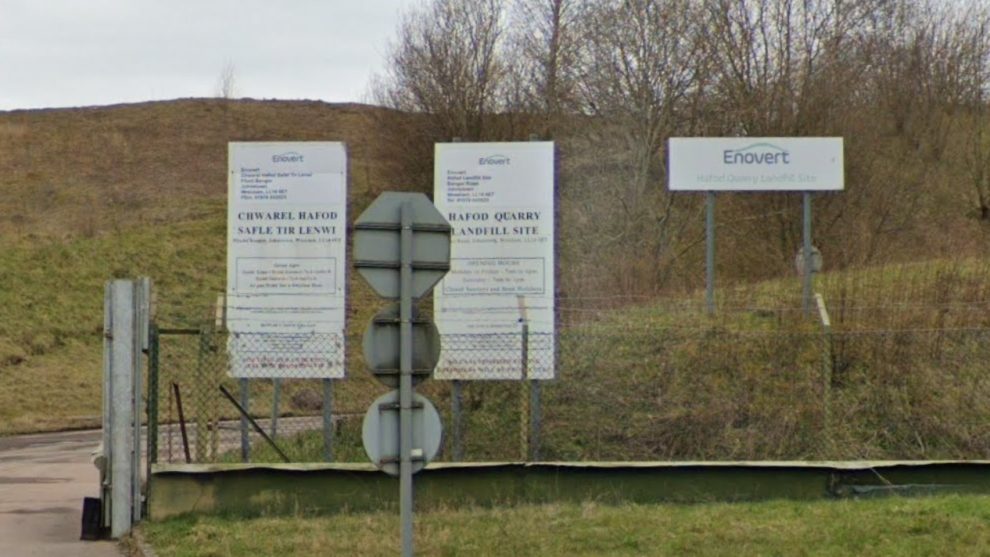THE SENEDD’S Petitions Committee has agreed to hold an inquiry into long-standing odour issues at Hafod Quarry landfill site.
Campaigner and lead petitioner Steve Gittins submitted a 1,125-name petition calling on the Welsh Government to review the actions taken to date by Natural Resoures Wales – the body responsible for issuing site operator Enovert’s environmental permit – and consider revoking the permit.
Residents of Johnstown, Ruabon, Ponciau and Rhostyllen have endured the odours problems for 18 years with no real solutions offered.
Health concerns over regular exposure to hydrogen sulphide continue to concern residents as the smell persists – despite official assurances that emissions from Hafod are at safe levels.
Now the Senedd Petitions Committee says a short inquiry is needed to address the situation.
At the committee’s meeting on Monday, Vaughan Gething MS said: “We have received a range of updates since we last considered this petition.
“There are relevant readings of substances that affect human health in circulation and people think it’s likely from this site. This matter is within our remit. I think a hearing inviting people to give evidence would be of real value.
“We should invite Enovert, Wrexham Council and NRW to give evidence and after that we should ask the petitioner their views about what they’ve heard. Hopefully there will be an action plan for the future and when the nuisance issue for residents may be resolved.”
North Wales MS Carolyn Thomas, who chairs the committee, agreed.
“I sympathise with the residents,” she said. “I support an inquiry too. The smell and odour drifts quite a distance.
“The council has put extra resources into trying to deal with it and we need to help as well.”
In his submission Mr Gittins expressed the feelings of the community that has been living with this situation for years.
“The Hafod Landfill Site has caused community distress for 18 years, making it Wales’ longest running environmental campaign,” he said.
“Despite efforts by residents and elected representatives, the site continues to emit noxious odours, creating an unacceptable statutory nuisance.
“In 2024, the odour and air pollution reached distressing and crisis levels. Families were unable to open their windows, children are forced to play indoors.
“The data clearly shows that the odour threshold of 4.7 parts per billion (ppb), the level at which 50% of people can detect the unpleasant smell, was exceeded in 547 out of 2,401 15-minute intervals, amounting to approximately 23% of the entire monitoring period.

“This finding alone demonstrates a persistent and repeated odour nuisance, which is not only disruptive to quality of life but can also contribute to stress, sleep disturbance, and mental health impacts. The peak level recorded was 17.97ppb, almost four times the recognised odour detection limit.
“Despite this, the monitoring report attempts to downplay the results by referencing workplace exposure limits set by the Health and Safety Executive (HSE).
“These thresholds, 5,000ppb (8-hour average) and 10,000 ppb (15-minute), are designed for industrial settings, not public residential areas, and are entirely inappropriate benchmarks for assessing public health impacts in this context.”
In its response to the petition, Enovert said it was working with NRW to solve the issue.
“Enovert are proactively engaged and working with NRW, as the site’s regulator, to address community concerns of odour.
“Much work has been done and improvement delivered since complaints and interest in the site escalated in September 2024, and this work continues.”













